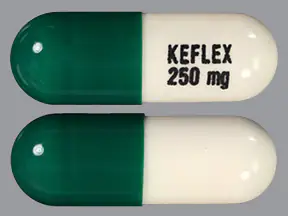Cymbalta is a popular prescription medication used to treat depression, anxiety, and chronic pain. Its generic name is duloxetine, and it belongs to a class of drugs called selective serotonin and norepinephrine reuptake inhibitors (SSNRIs). In this article, we will explore everything you need to know about Cymbalta, including its uses, side effects, and precautions.
Cymbalta Generic Name
Table of Contents
- What is Cymbalta?
- How does Cymbalta work?
- What are the uses of Cymbalta?
- What are the side effects of Cymbalta?
- What precautions should you take when using Cymbalta?
- How to take Cymbalta?
- How to stop taking Cymbalta?
- Cymbalta vs. Other antidepressants
- Can Cymbalta be used during pregnancy or while breastfeeding?
- Can you drink alcohol while taking Cymbalta?
- Can Cymbalta cause weight gain?
- Can Cymbalta cause suicidal thoughts?
- How to buy Cymbalta?
- How to store Cymbalta?
- Conclusion
1. What is Cymbalta?
Cymbalta is a brand name for duloxetine, a prescription medication used to treat depression, anxiety, and chronic pain. It is a serotonin and norepinephrine reuptake inhibitor (SNRI) that works by increasing the levels of serotonin and norepinephrine in the brain, which are neurotransmitters that regulate mood.
2. How does Cymbalta work?
Cymbalta works by blocking the reuptake of serotonin and norepinephrine in the brain, which increases the levels of these neurotransmitters. This helps to regulate mood and reduce anxiety and depression symptoms. It also has a pain-relieving effect that can help people with chronic pain conditions.
3. What are the uses of Cymbalta?
Cymbalta is primarily used to treat major depressive disorder and generalized anxiety disorder. It is also used to treat chronic pain conditions such as fibromyalgia, diabetic neuropathy, and chronic musculoskeletal pain. In addition, it may be used off-label to treat other conditions such as panic disorder, obsessive-compulsive disorder, and post-traumatic stress disorder.
4. What are the side effects of Cymbalta?
The most common side effects of Cymbalta include nausea, dry mouth, constipation, dizziness, and fatigue. Other side effects may include headache, insomnia, sweating, and sexual dysfunction. In rare cases, Cymbalta may cause more serious side effects such as liver damage, serotonin syndrome, and suicidal thoughts or behaviors.
5. What precautions should you take when using Cymbalta?
Before taking Cymbalta, you should inform your doctor if you have a history of liver or kidney disease, bipolar disorder, seizures, or a bleeding disorder. You should also inform your doctor of any medications or supplements you are taking, as they may interact with Cymbalta. Cymbalta may also interact with alcohol, so you should avoid drinking while taking this medication.
6. How to take Cymbalta?
Cymbalta is usually taken once a day with or without food. The recommended starting dose for depression is 60 mg per day, while the recommended starting dose for anxiety and pain is 30 mg per day. Your doctor may adjust your dose based on your response to the medication and any side effects you may experience.
7. How to stop taking Cymbalta?
If you want to stop taking Cymbalta, you should talk to your doctor first. Abruptly stopping Cymbalta can
8. Cymbalta vs. Other antidepressants
Cymbalta belongs to a class of medications called selective serotonin and norepinephrine reuptake inhibitors (SNRIs), which also includes drugs like Effexor and Pristiq. These medications work by increasing the levels of serotonin and norepinephrine in the brain, which can help to regulate mood and reduce anxiety and depression symptoms. Other classes of antidepressants, such as selective serotonin reuptake inhibitors (SSRIs) and tricyclic antidepressants (TCAs), work in different ways.
9. Can Cymbalta be used during pregnancy or while breastfeeding?
Cymbalta should only be used during pregnancy if the benefits outweigh the risks. Studies have shown that Cymbalta may increase the risk of miscarriage, preterm birth, and low birth weight. It may also cause withdrawal symptoms in newborns. Cymbalta should also be used with caution while breastfeeding, as it may pass into breast milk and affect the infant.
10. Can you drink alcohol while taking Cymbalta?
Drinking alcohol while taking Cymbalta can increase the risk of side effects such as dizziness, drowsiness, and impaired judgment. It may also increase the risk of liver damage, which is a rare but serious side effect of Cymbalta.
11. Can Cymbalta cause weight gain?
Weight gain is a possible side effect of Cymbalta, although it is not very common. If you are concerned about weight gain while taking Cymbalta, you should talk to your doctor.
12. Can Cymbalta cause suicidal thoughts?
Cymbalta may increase the risk of suicidal thoughts or behaviors, especially in children, adolescents, and young adults. If you or someone you know is experiencing suicidal thoughts or behaviors while taking Cymbalta, you should seek medical attention immediately.
13. How to buy Cymbalta?
Cymbalta is a prescription medication that can only be obtained with a valid prescription from a healthcare provider. It is available at most pharmacies and can also be ordered online with a valid prescription.
14. How to store Cymbalta?
Cymbalta should be stored at room temperature, away from moisture and heat. It should also be kept out of reach of children and pets.
15. Conclusion
Cymbalta, or duloxetine, is a popular medication used to treat depression, anxiety, and chronic pain. It works by increasing the levels of serotonin and norepinephrine in the brain, which can help to regulate mood and reduce pain. However, it may also cause side effects such as nausea, dizziness, and sexual dysfunction, and it may increase the risk of more serious side effects such as liver damage and suicidal thoughts or behaviors. If you are considering taking Cymbalta, you should talk to your doctor about the potential benefits and risks.
FAQs
- Is Cymbalta the same as Prozac? No, Cymbalta and Prozac belong to different classes of antidepressants. Cymbalta is a selective serotonin and norepinephrine reuptake inhibitor (SNRI), while Prozac is a selective serotonin reuptake inhibitor (SSRI).
- Does Cymbalta help with pain? Yes, Cymbalta is approved for the treatment of chronic pain conditions such as fibromyalgia, diabetic neuropathy, and chronic musculoskeletal pain.
- How long does it take for Cymbalta to start working? It may take several weeks for Cymbalta to start working, and the full effect may not
- be felt for several months. Your doctor will monitor your symptoms and adjust your dosage as needed.
- Can Cymbalta cause high blood pressure? Cymbalta may cause a slight increase in blood pressure in some people, but this is not a common side effect. If you have high blood pressure, your doctor may monitor your blood pressure more closely while you are taking Cymbalta.
- Is it safe to stop taking Cymbalta abruptly? No, stopping Cymbalta abruptly can cause withdrawal symptoms such as dizziness, nausea, headache, and insomnia. Your doctor may recommend gradually tapering off the medication to avoid these symptoms.
- Overall, Cymbalta is a medication that can be effective in treating depression, anxiety, and chronic pain, but it does come with potential risks and side effects. It is important to talk to your doctor about the potential benefits and risks of taking Cymbalta, and to follow their guidance on how to take the medication safely and effectively.








